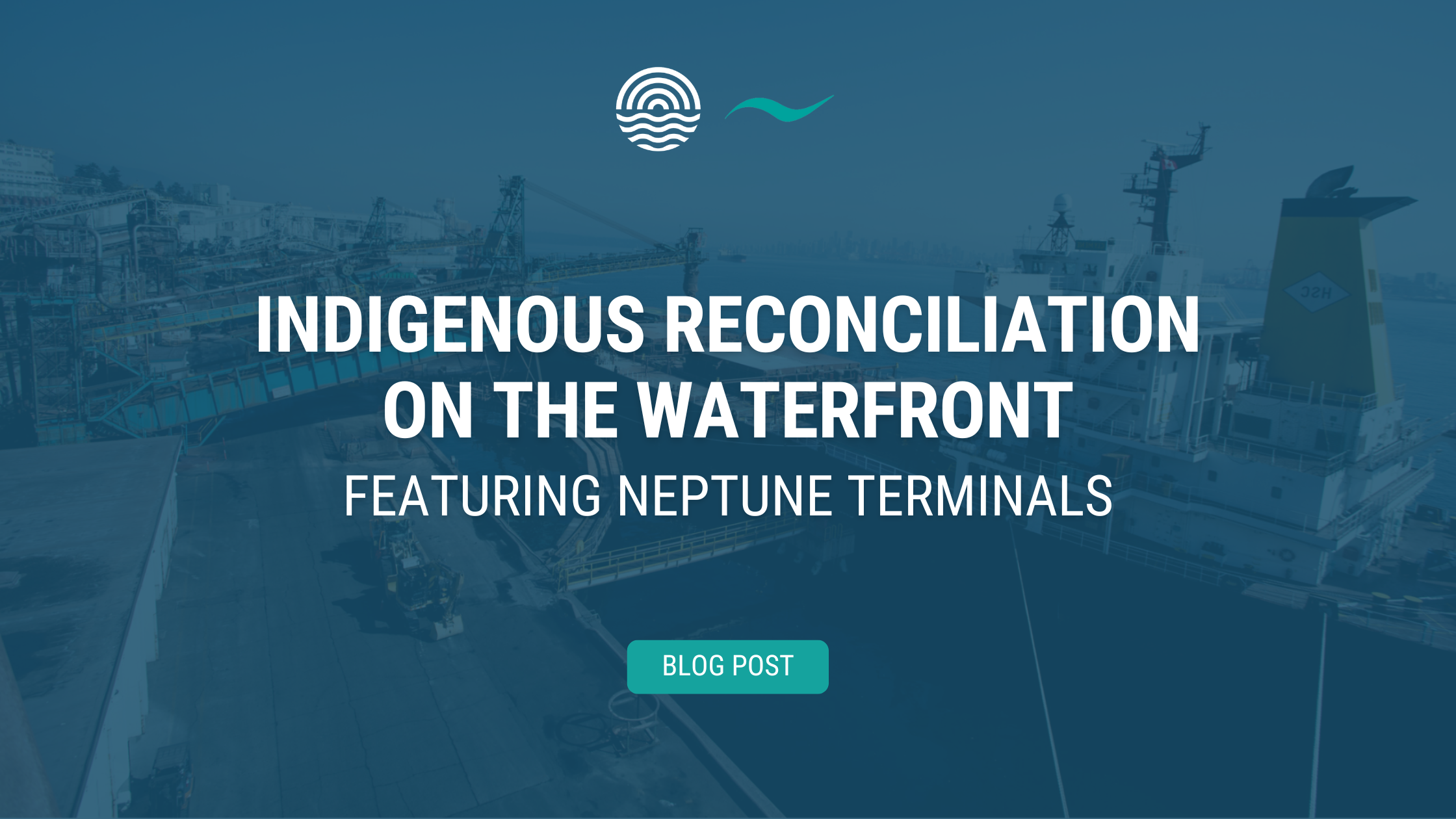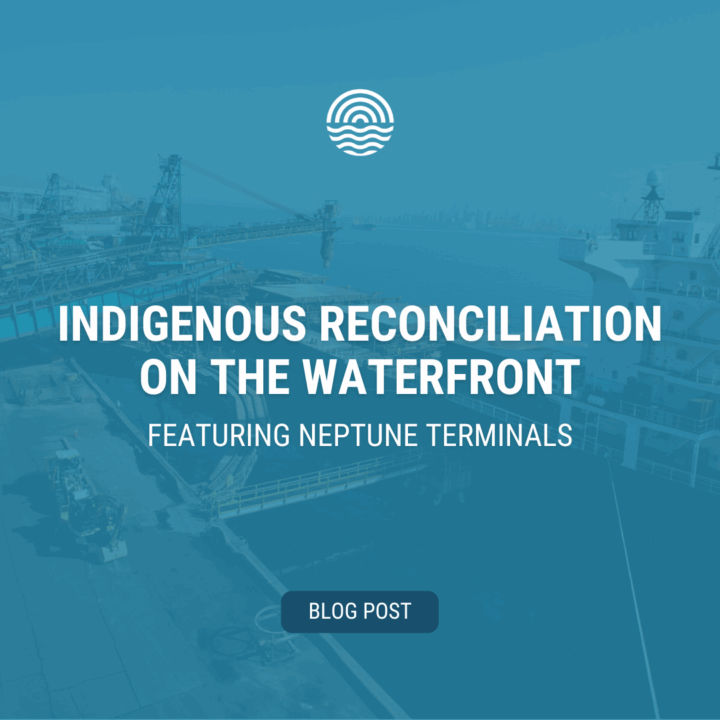
BLOG POST
Indigenous Reconciliation on the Waterfront: Honouring Culture Through Art at Neptune Terminals
Whether through art and culture, education, or opening doors to employment, the waterfront advances Indigenous reconciliation in diverse ways. We’re proud to put a spotlight on Neptune Terminals’ story.
When relocating their office in 2024, Neptune saw an opportunity to honour their place on the North Shore. They commissioned an Indigenous mural by Coast Salish artist Xwalacktun (Rick Harry), a piece that now serves as a daily reminder of relationship, respect, and learning.
HONOURING LOCAL NATIONS THROUGH ART
In 2024, Neptune relocated their administration office to Forester Street in North Vancouver. For Neptune, this move was an opportunity to redesign and rethink the space – and the land – where they worked. Designing their office space was a chance to recognize and honour the history and reality of the place where they work every day. Located on the North Shore, with the Squamish (Sḵwx̱wú7mesh Úxwumixw) and Tsleil-Waututh (səlilwətaɬ) Nations as their neighbours, Neptune sought a way to honour that connection.
With the support of an art consultant, they commissioned an Indigenous mural that would not only bring beauty to their workplace but also honour the culture and traditions of the local Nations.
After meeting with several Indigenous artists, Neptune invited award-winning Coast Salish artist, Xwalacktun (Rick Harry) of the Squamish Nation and Kwakiutl (Kwakwaka’wakw) Nation, to create their mural, whose deep roots on the North Shore brought a meaningful connection to the project.
The mural, now a striking centrepiece in Neptune’s office, incorporates symbols with rich cultural significance:
- A wolf, honouring the Tsleil-Waututh Nation.
- A thunderbird, symbolizing the Squamish Nation.
- Cedar branches, representing the cedar brushing ceremony, a tradition of cleansing and protection.
The mural’s room was named the Cedar Room by Xwalacktun, with a commemorative plaque installed to mark its significance.
For Neptune, the project was an act of relationship-building, respect, and learning. The mural remains a powerful reminder that they live, work, and play on the unceded traditional and ancestral homelands of the Coast Salish Peoples.
EDUCATION THROUGH STORYTELLING
For Neptune, reconciliation also means creating space to listen.
Over the past three years, they have invited Indigenous speakers into their workplace as part of their Truth and Reconciliation activities. These sessions have focused on the history and legacy of residential schools and colonization, giving employees the chance to hear truths directly from those with lived experience and knowledge to share.
To accompany this learning, Neptune has supported the Indian Residential School Survivors Society with charitable contributions, reinforcing their commitment to truth-telling and healing.
INVESTING IN FUTURE GENERATIONS
Recognizing the importance of creating opportunities for Indigenous youth, Neptune has also established educational partnerships that make a tangible impact. These include:
- Contributing over $10,000 to Capilano University’s Indigenous student endowment fund.
- Donating two scholarships annually through ACCESS, an organization that provides education and training for Aboriginal people living in greater Vancouver.
- Supporting community events and initiatives, including golf tournaments that raise funds for Indigenous students.
These investments are part of a broader commitment: opening doors for Indigenous students and future leaders on the waterfront.
LOOKING AHEAD
Reconciliation is an ongoing journey — one that asks for listening, learning, and showing up in meaningful ways.
Neptune’s upcoming orientation program in partnership with the Squamish Nation is one step in deepening that relationship and continuing that path. By creating space for dialogue and introducing Indigenous community members to careers at Neptune, the program aims to build awareness and open pathways into the waterfront industry.
Every initiative is part of a larger commitment: continuing to learn, build trust, and weave reconciliation into everyday practice. Each step builds on the last, carrying the work forward with respect and care.


